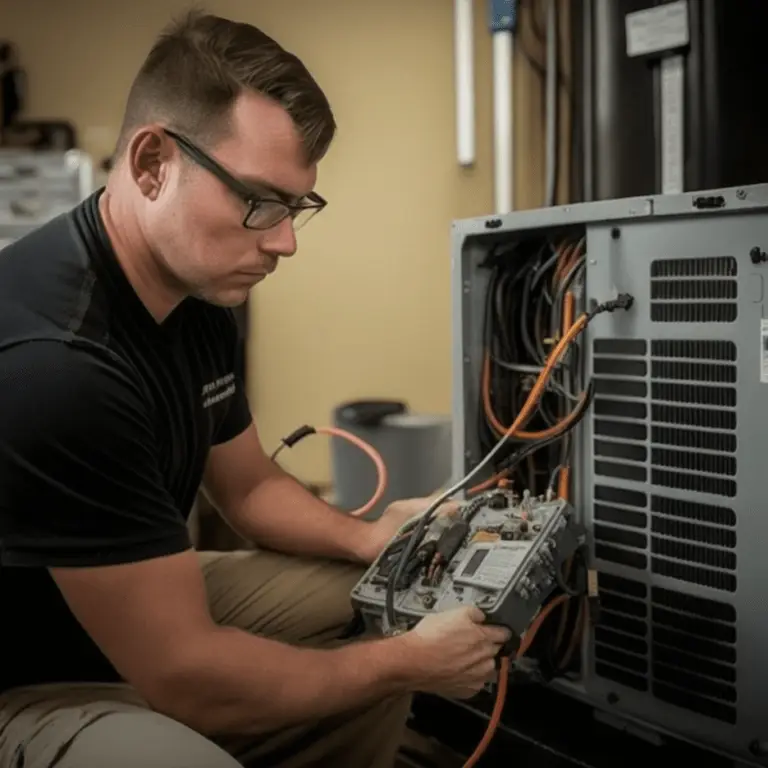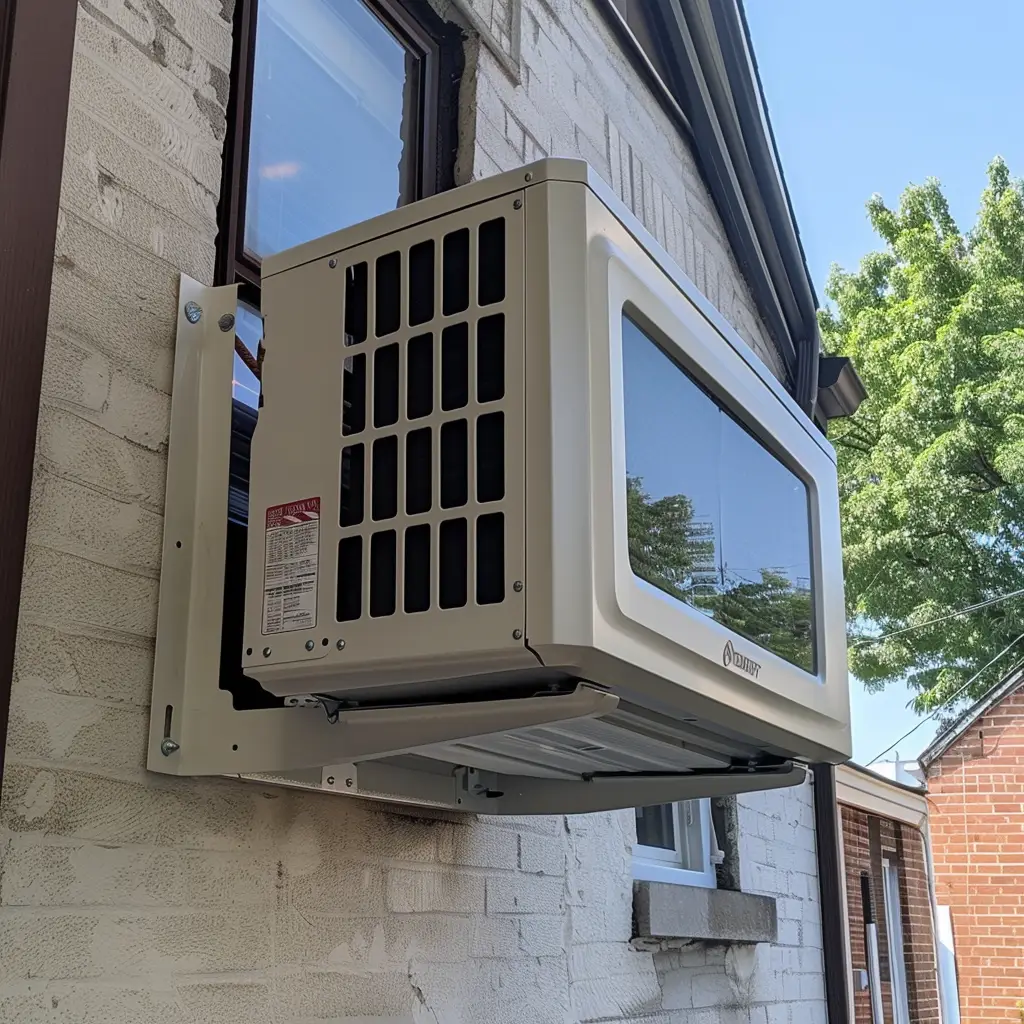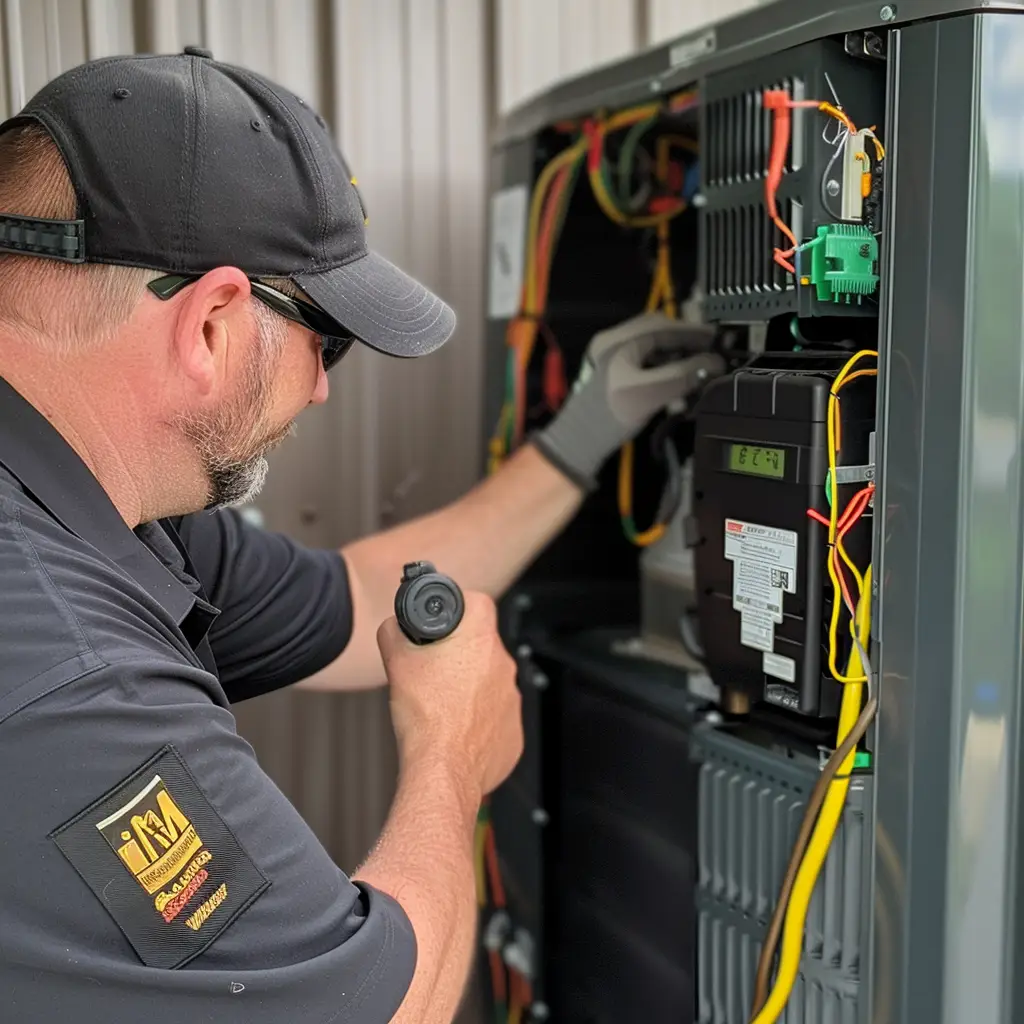Deciding whether to repair or replace your furnace can be a difficult choice, especially when faced with a sudden breakdown during the colder months. This comprehensive guide will help you weigh the pros and cons of repairing vs. replacing your furnace, taking into consideration factors such as age, efficiency, and overall cost.
1. Consider the Age of Your Furnace
The age of your furnace is an essential factor when deciding whether to repair or replace it. A typical furnace has a lifespan of 15-20 years. If your furnace is over 15 years old, it might be more cost-effective to replace it rather than investing in costly repairs.
2. Assess the Efficiency of Your Furnace
Older furnaces are less efficient than newer models, leading to higher energy bills. If your furnace has a low Annual Fuel Utilization Efficiency (AFUE) rating, upgrading to a higher-efficiency model could save you money in the long run.
3. Evaluate the Repair Costs
Consider the cost of the repair in relation to the price of a new furnace. As a general rule, if the repair cost is more than 50% of the cost of a new furnace, you should consider replacing it. Frequent repairs can also be a sign that your furnace is reaching the end of its lifespan.
Factor in the Frequency of Repairs
If your furnace has required frequent repairs in recent years, it could be a sign that it’s nearing the end of its life. Constantly investing in repairs could become more expensive than replacing the furnace altogether.
Check for Uneven Heating
A well-functioning furnace should distribute heat evenly throughout your home. If you notice uneven heating or certain rooms feeling colder than others, it could indicate that your furnace is struggling to keep up with demand, and replacing it might be a wise decision.
Comfort and Performance
A well-functioning furnace should provide consistent and comfortable heating throughout your home. If you are experiencing uneven temperatures or poor indoor air quality, it may be time to consider a replacement. A new furnace will have better performance and more advanced features to ensure your comfort.
Warranty and Service Life
Check your furnace’s warranty coverage. If your furnace is still under warranty, repairing it may be more cost-effective. However, if the warranty has expired and the unit is nearing the end of its service life, investing in a new furnace might be the better option.
Why Trust AirPoint for Expert Furnace Repairs and Installations
When deciding whether to repair or replace your furnace, take into account the age, efficiency, repair costs, frequency of repairs, heating performance, energy bills, and environmental impact. If your furnace is nearing the end of its life or has become inefficient, investing in a new furnace could provide long-term benefits. However, if your furnace still has some years left and the repair costs are reasonable, opting for a repair might be the better choice.
At AirPoint, we understand the importance of making an informed decision. As a Carrier factory authorized dealer and NATE certified company in Toronto, we pride ourselves on offering exceptional service and expertise. Our team has been recognized with the HomeStars Best of the Best 2023 award and maintains a 5-star rating on Google and HomeStars. Rest assured that our technicians are fully certified by TSSA, HRAI and CSA, ensuring that you receive professional guidance tailored to your specific situation.
In conclusion, regardless of whether you choose to repair or replace your furnace, it is essential to consult with a trusted HVAC professional, such as the experts at AirPoint. Our team is committed to helping you make the right decision for your home’s comfort and efficiency.
To learn more about whether you should repair or replace your furnace, check out this video by Fire & Ice Heating and Air Conditioning
Furnace Repair vs Install FAQs: Answers from the Experts
Get more answers to your questions about furnace repairs vs. installations from the experts at AirPoint
Is it better to repair or replace a furnace?
Deciding whether to repair or replace a furnace depends on several factors, such as the age of the furnace, its efficiency, the cost of repairs, and the frequency of breakdowns. If the furnace is more than 15 years old and frequently needs repairs, it may be more cost-effective to replace it with a newer, energy-efficient model.
Is it worth repairing a 20-year-old furnace?
In most cases, it's not worth repairing a 20-year-old furnace, as its efficiency is likely much lower than that of a modern unit. Replacing an older furnace with a new, energy-efficient model can lead to significant energy savings and improved comfort in your home.
When should I consider replacing a furnace?
Consider replacing a furnace when it is more than 15 years old, has frequent breakdowns, or is no longer energy-efficient. Additionally, if the cost of repair is more than 50% of the cost of a new furnace, it's usually better to invest in a replacement.
Is it better to have an old furnace or a new furnace?
A new furnace is typically better than an old furnace, as it offers improved energy efficiency, better heating performance, and fewer breakdowns. Newer furnaces also have more advanced technology, which can provide greater comfort and control over your home's temperature.
What is the most expensive part to replace in a furnace?
The most expensive part to replace in a furnace is typically the heat exchanger. A damaged or cracked heat exchanger can lead to inefficient heating and potential safety hazards, such as carbon monoxide leaks.
What usually fails on a furnace?
Common furnace components that may fail include the blower motor, ignitor, flame sensor, and control board. Regular maintenance can help prevent many of these issues and extend the life of your furnace.
What to ask when replacing a furnace?
When replacing a furnace, consider asking the following questions:
- What is the appropriate size and type of furnace for my home?
- What is the energy efficiency rating (AFUE) of the new furnace?
- Are there any incentives or rebates available for upgrading to a more energy-efficient model?
- How long is the warranty, and what does it cover?
- What is the estimated cost of installation, and are there any financing options available?
- How can I maintain the new furnace to ensure optimal performance and longevity?





